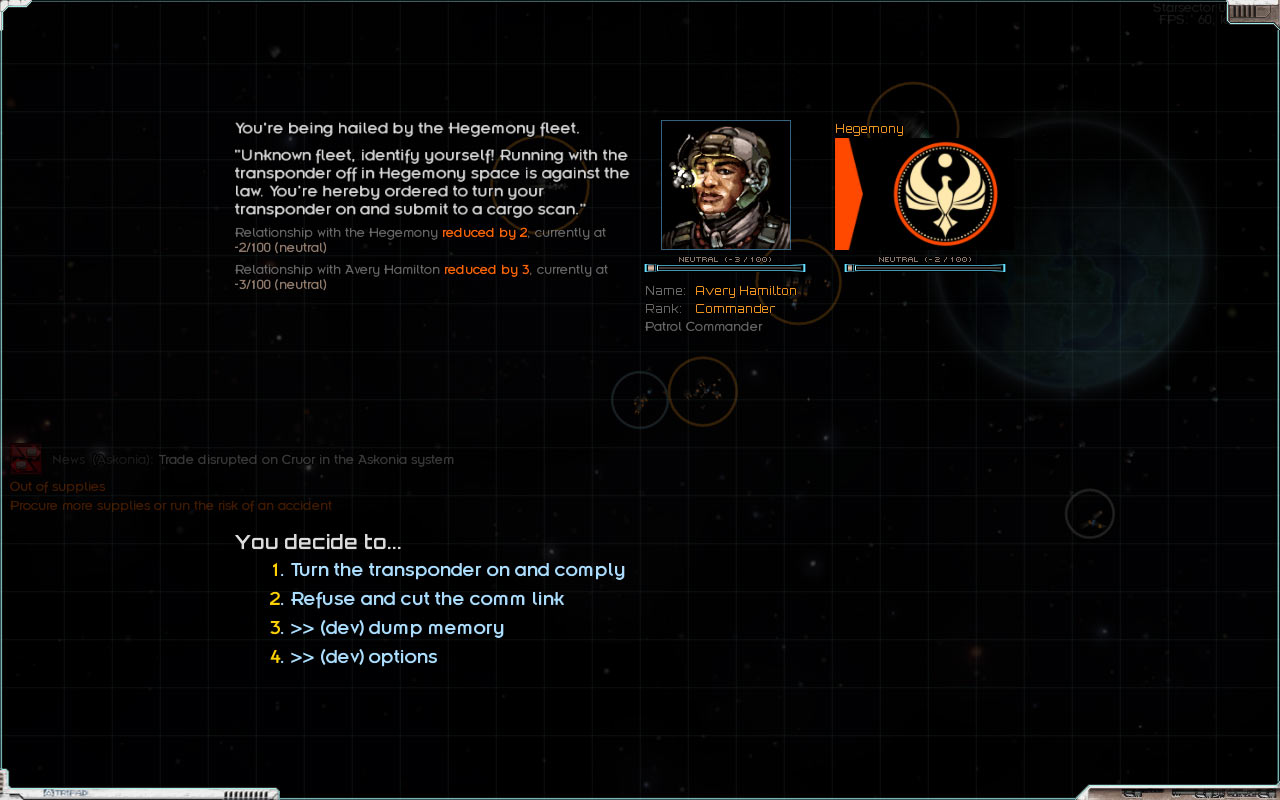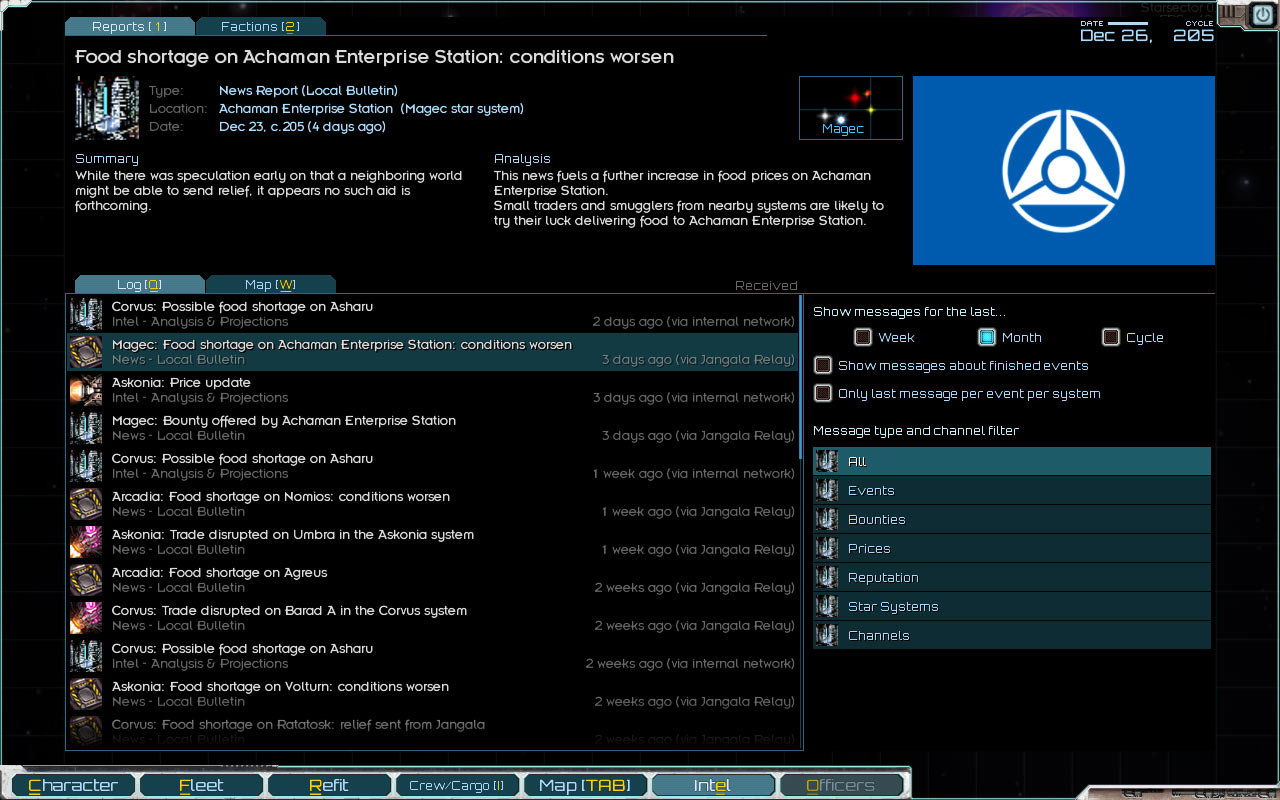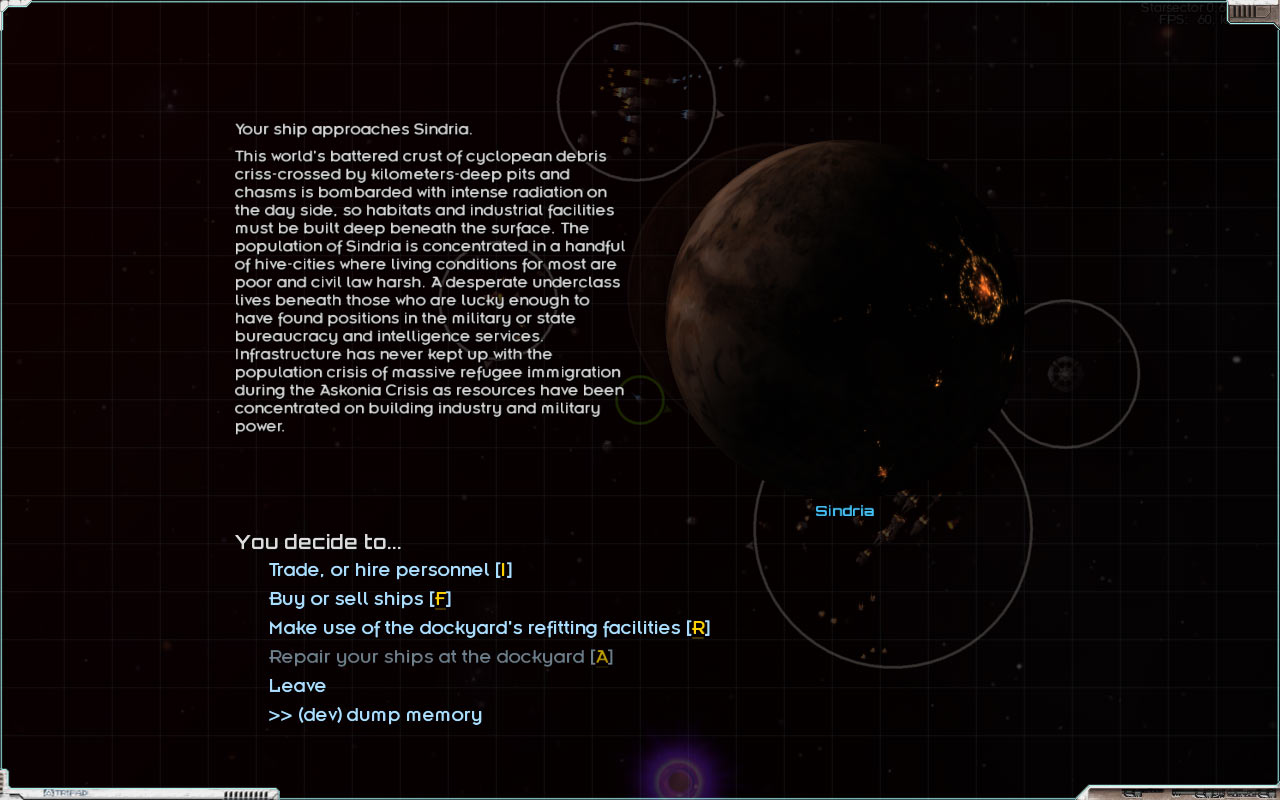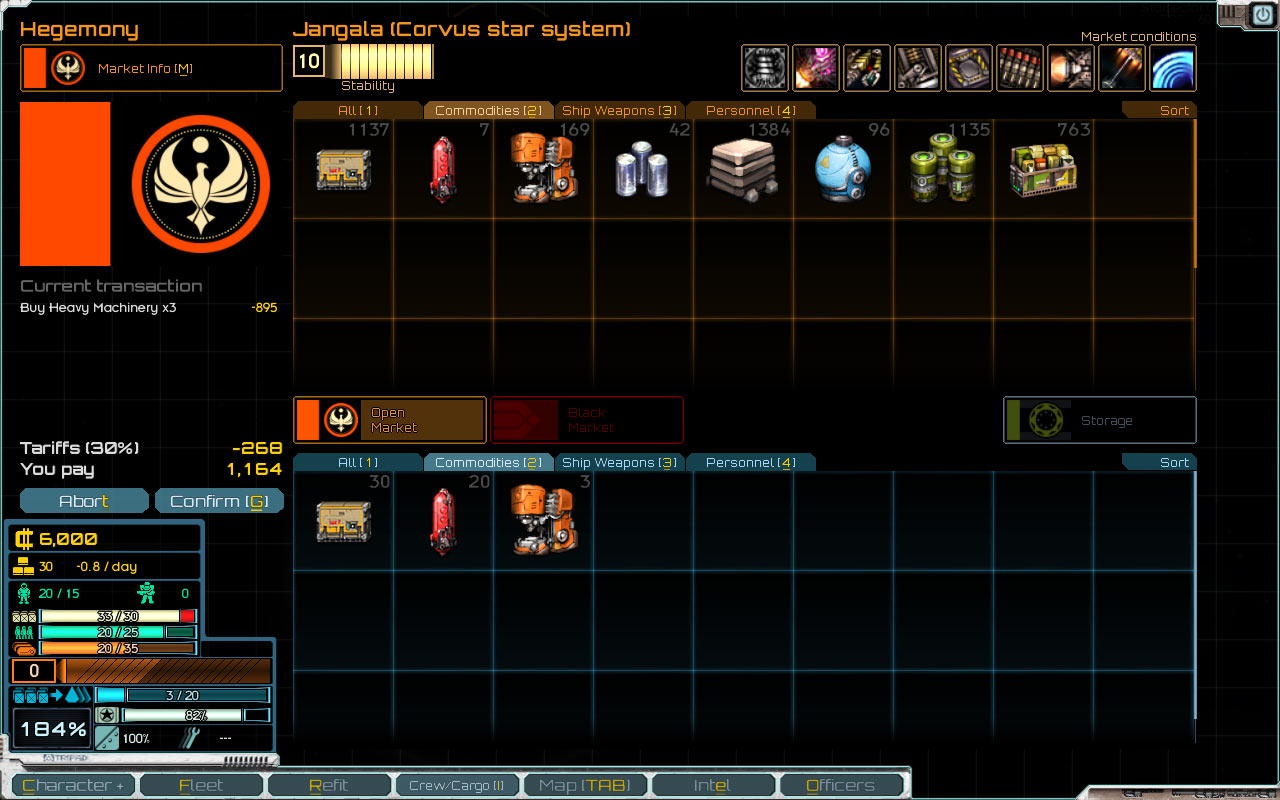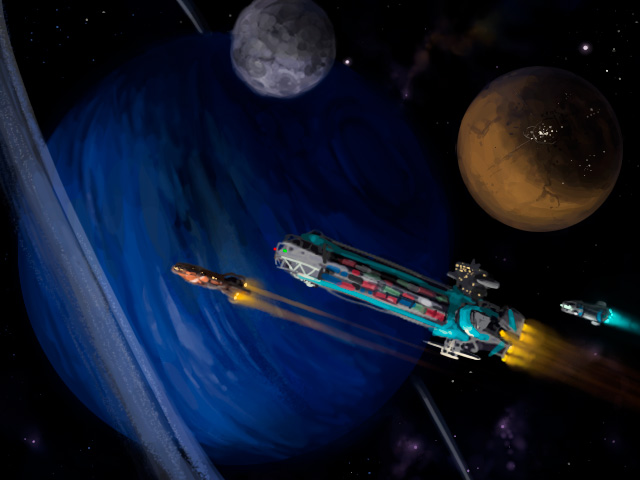Transponder
I’d mentioned transponders in the last couple of posts, mostly in the “here’s roughly what they do, details TBD”. Well, I’ve spent the last week or so working on it, and now it’s time for those details!
A transponder, much like in real life, is a shipboard device that sends out identifying information on a public channel. Smugglers, pirates, and other shady types find some advantages from turning it off, offset by increased attention from patrols. Conceptually, each ship has one, but in terms of game mechanics, it’s controlled on a fleet level. All ships in a fleet either have their transponders on or off.
Because I’m pretty sure someone will bring it up: you could probably squeeze some nuance out of allowing per-ship transponder control. However, I think it’s better to keep individual mechanics as simple as possible and get complexity out of the interactions of different mechanics instead. It’s the same idea as having a few simple rules that work together vs one really complicated rule. In the first case, you have a game. In the second, you have a mess.
Overview
Before diving into the complexities, let’s summarize what the transponder does, mechanically:
Turning the transponder off attracts the attention of patrols, makes you harder to see, reduces the reputation impact of your actions, and allows trade that might not be possible otherwise due to your reputation.
I think it’s interesting to see how something that can be summarized relatively succinctly nonetheless gets very involved in the details. With that in mind, let’s dive into those.
